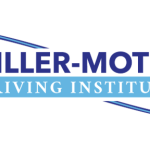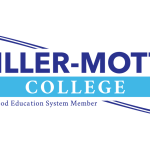Becoming a licensed practical nurse (LPN) is a shorter path to break into the field of nursing. This makes it a great option for those interested in starting on the path towards a new career as a LPN. LPNs may choose to complete additional education to expand their skill set and advance their careers.
Working as an LPN can be a rewarding option for those interested in positively impacting the lives of others. Due to the high probability of patient contact , LPNs play vital roles in their care and recovery. Their versatile skill set can be used in various settings to treat a broad range of patients.
What Are Licensed Practical Nurses?
Practical nurses, or vocational nurses, provide basic patient care and comfort under the supervision of a registered nurse (RN), physician or other licensed healthcare provider.
An LPNs scope of practice is limited which prevents them from administering certain medications, diagnosing patients, and prescribing medication. As a result, they can implement certain parts of a patient’s care plan which is created by an RN or physician. LPNs monitor a patient’s status throughout their care plan to determine whether the treatment is effective or requires adjustments.
Practical nurses must pass the National Council Licensure Examination for Practical Nurses (NCLEX-PN) to earn the title of licensed practical nurse or licensed vocational nurse (LVN). NCLEX-PN is offered through the National Council of State Boards of Nursing (NCSBN).
LPNs can work in nursing homes, residential care facilities, hospitals, physician’s offices, or in home health care. Depending on where they work, practical nurses may care for children, adults, or those with disabilities. They work closely with healthcare professionals to ensure continuity of care and increase the number of positive patient outcomes.
What Does a Practical Nurse Do?
An LPN’s full scope of practice changes based on their employer, regulations and state nurse practice act, but they typically provide direct patient care.
Common LPN responsibilities include:
- Assessing and monitoring patient vital signs.
- Documenting patient care and maintaining health records.
- Reporting patient status changes and concerns to RNs or physicians.
- Assisting patients with daily activities such as eating, dressing, and bathing.
- Dressing wounds and changing bandages.
- Following healthcare plans created by an RN or physician.
- Reinforcing the explanation of treatment plans to patients and their families.
- Moving or lifting patients.
LPNs can act as a liaison between patients and the healthcare team to promote continuity of care and increase patient outcomes. Due to their regular interaction, LPNs can build relationships based on trust and empathy with their patients. This can improve a patient’s comfort and allow LPNs to continuously provide high-quality care.
How Do You Become a Practical Nurse?
Those interested in becoming an LPN will need a high school diploma, GED, or equivalent. They must complete a state-approved practical nursing program that includes classroom instruction and supervised clinical practice. These programs can be completed at a technical school, community college, or vocational school.
Those seeking a complete list of approved practical nursing programs should contact their state board of nursing. After completing their practical nursing program, graduates must earn licensure by passing NCLEX-PN. Once they earn their license, LPNs can start working in their field.
LPNs interested in advancing their skills can pursue additional certifications. Some specialities include:
- Intravenous (IV) therapy. Depending on the state, students may be trained in IV therapy as part of their practical nursing program. This certificate allows LPNs to insert IVs, operate IV pumps and equipment, and calculate the flow rate of infusions.
- Long-term care. LPNs who specialize in long-term care undergo additional training to better care for geriatric and chronically ill patients.
- Pharmacology. While pharmacology is taught in practical nursing programs, this certification provides a deeper understanding.
Is an LPN the Same as an LVN?
LPNs may be called an LVN based on the state in which they work. LPN is used widely across the United States while LVN is used in Texas and California. Although they have different names, their responsibilities and licensure requirements are very similar.
Why Become an LPN?
Becoming an LPN is a great way for those eager to break into nursing. LPN programs can be completed much faster than a traditional two or four-year nursing program. As such, LPNs can start making positive impacts on the lives of patients and their families sooner.
LPNs can work in various settings and provide a broad range of care for their patients. They can work with injured patients, sick patients, recovering patients, or those requiring long-term care.
Working as an LPN can be very rewarding as it allows them to form close bonds with patients and their families. Seeing how their efforts can help improve a patient’s quality of life can bring personal fulfilment.
LPNs have opportunities for career growth. They can earn certifications in various specialities to expand their skills, advance their careers, or further their education. These opportunities for continual development allow LPNs to customize their careers to suit their interests.
Working as an LPN presents a unique blend of challenge, purpose, and fulfilment. This can make it a great career choice for those interested in entering the nursing field.
According to the Bureau of Labor Statistics (BLS), the field of practical nursing is expected to grow by 5% between 2022-32. This translates to about 54,400 openings for LPNs and LVNs over the next decade.
In Summary
LPNs provide compassionate and patient-centered care under the supervision of RNs and physicians. While their responsibilities can vary based on location and employer, they typically work directly with patients. The time spent with each patient allows LPNs to form trusting relationships rooted in empathy and human connection.
These meaningful bonds can create lasting, positive experiences for patients and their families. Seeing their efforts improve a patient’s well-being can lead to professional and personal fulfillment. Those interested in a deeply rewarding, relationship-driven career helping others may excel as an LPN.
Training to become an LPN provides a path into nursing and leaves room for advancement later in their careers.
Information within this blog is for general information purposes only. Miller-Motte does not assume or guarantee certification/licensures, specific job/career positions, income earning potential or salary expectations based on the programs offered at Miller-Motte. Career and program information statements in this blog do not guarantee that programs or other information mentioned are offered at Miller-Motte.




